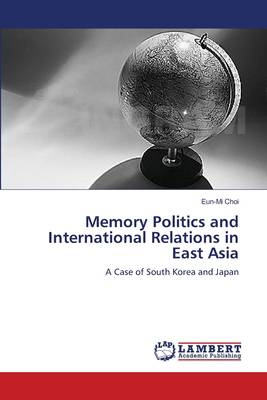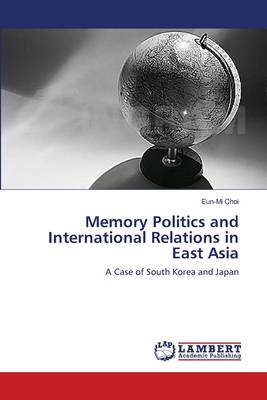
- Afhalen na 1 uur in een winkel met voorraad
- Gratis thuislevering in België vanaf € 30
- Ruim aanbod met 7 miljoen producten
- Afhalen na 1 uur in een winkel met voorraad
- Gratis thuislevering in België vanaf € 30
- Ruim aanbod met 7 miljoen producten
Zoeken
Memory Politics and International Relations in East Asia
A Case of South Korea and Japan
Eun-Mi Choi
Paperback | Engels
€ 71,95
+ 143 punten
Omschrijving
In the early 20th century, we experienced the most terrible and horrible wars. There were heavy causalties and lots of territories and volunteering were damaged. On August 15th, 1945, the warfare ended. However, after the short time of joyfulness, the world rushed into ideological war, Cold war. Soon, the world was divided into Capitalistic camp centered on America and Socialistic camp centered on Soviet Union. In the Cold War period, there were few connections among countries. Then, this situation has been continued after dissolving of Cold War mood. Here, this book raises a question why some countries doesn't have good relationship even until now and researches the reasons, current states, and some efforts of overcoming it, based on memory politics. It mainly focuses on Korea-Japan relationship in East Asia.
Specificaties
Betrokkenen
- Auteur(s):
- Uitgeverij:
Inhoud
- Aantal bladzijden:
- 72
- Taal:
- Engels
Eigenschappen
- Productcode (EAN):
- 9783659135293
- Verschijningsdatum:
- 22/05/2012
- Uitvoering:
- Paperback
- Formaat:
- Trade paperback (VS)
- Afmetingen:
- 152 mm x 229 mm
- Gewicht:
- 117 g

Alleen bij Standaard Boekhandel
+ 143 punten op je klantenkaart van Standaard Boekhandel
Beoordelingen
We publiceren alleen reviews die voldoen aan de voorwaarden voor reviews. Bekijk onze voorwaarden voor reviews.








